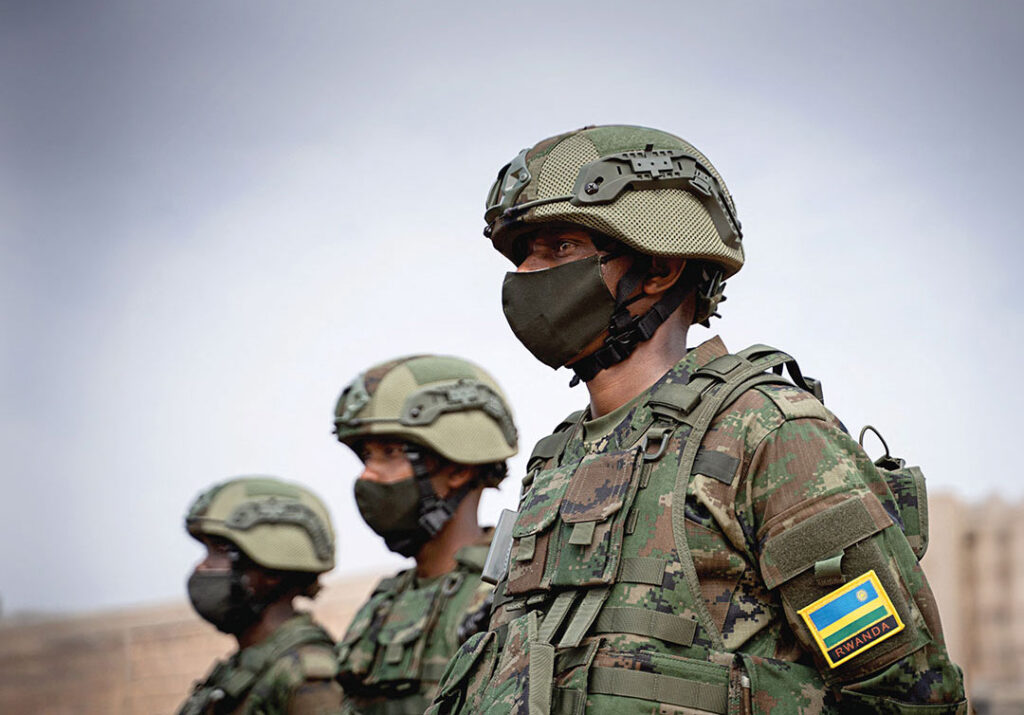ADF STAFF
During its more than two-year intervention in Mozambique, Rwandan and allied forces liberated 90% of the troubled Cabo Delgado region from the grip of extremists.
Ralph Shield, a conflict researcher with the U.S Naval War College, studied the actions of the 2,500 Rwandan Soldiers and police officers and found that they pursued militants while still exercising discretion in the use of force to avoid civilian harm. In fact, he found, Rwanda was deployed to Mozambique for an entire year before inflicting its first recorded civilian fatality.
Shield pointed to three factors he believes helped Rwanda fight the insurgency while protecting civilians.
Winning civilian support: Rwandan forces, when on patrol, make it a point to interact with the local population and ask about their security needs. The troops speak Swahili, which is the primary language in the far north of Mozambique. Rwanda also emphasizes something it calls “umuganda,” or community work, in which Soldiers work with civilians on public projects such as wells.
Restrained use of firepower: Shield’s research shows that Rwandan forces exhibited “tactical restraint” while on patrol. They did not rely on less-precise air power or artillery to target insurgents.
An environment conducive to success: Rwandan forces benefited from the fact that, when they first deployed, much of the population had fled the towns in Cabo Delgado where they operated. This made it easier to avoid harming civilians. Additionally, the insurgents rarely used improvised explosive devices and did not launch suicide bomb attacks.
Rwanda’s posture is based on “The Kigali Principles on the Protection of Civilians,” a set of 18 guidelines created in 2015, enumerating the ways peacekeepers should act to protect the population and prevent mass atrocities. The principles were born out of lessons from Rwanda’s history when, in 1994, U.N. peacekeepers did not act to stop a genocide.
“When we talk about use of force, it tends to be misconstrued as recklessness,” Rwandan Gen. Patrick Nyamvumba, then-chief of defense staff, said in 2016 during a speech at the U.S. Institute of Peace. “The worst examples that we’ve seen, whether it’s Rwanda or whether it’s Srebrenica, you had peacekeepers, things happened in their presence, and they didn’t take action. All we are saying is ‘OK, that was then, we can’t afford to do that now.’”

